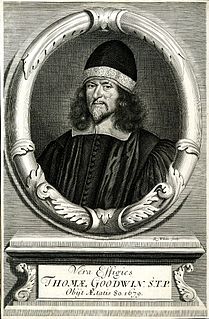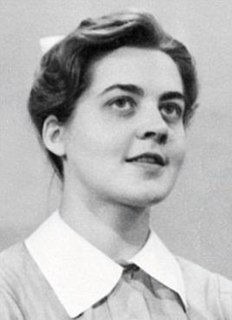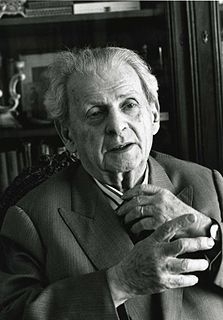A Quote by Simone Weil
One of the most exquisite pleasures of human love - to serve the loved one without his knowing it - is only possible, as regards the love of God, through atheism.
Related Quotes
Love is the creative refinement of sex energy. And so, when love reaches perfection, the absence of sex automatically follows. A life of love, an abstinence from physical pleasures is called brahmacharya, and anyone who wishes to be free from sex must develop his capacity to love. Freedom from sex cannot be achieved through supersession. Liberation from sex is only possible through love.
Man depends on God for all things: God depends on man for one. Without man's love God does not exist as God, only as creator, and love is the one thing no one, not even God himself, can command. It is a free gift or it is nothing. And it is most itself, most free, when it is offered in spite of suffering, of injustice, and of death . . . The justification of the injustice of the universe is not our blind acceptance of God's inexplicable will, nor our trust in God's love, his dark and incomprehensible love, for us, but our human love, notwithstanding anything, for him.
You can give without loving, but you can never love without giving. The great acts of love are done by those who are habitually performing small acts of kindness. We pardon to the extent that we love. Love is knowing that even when you are alone, you will never be lonely again. & great happiness of life is the conviction that we are loved. Loved for ourselves. & even loved in spite of ourselves.
Value God and his love more than all the world, though there were millions of them. He valued you before the world, and therefore is beforehand with you in his love. He not only loved you from everlasting, (whereas your love is but of yesterday,) but in the valuation of it, he loved you before all worlds, and preferred you to all worlds: though you loved the world first, before you loved him.
In love at one of its poles you find the personal, and at the other the impersonal. At one you have the positive assertion — Here I am; at the other the equally strong denial — I am not. Without this ego what is love? And again, with only this ego how can love be possible?
Bondage and liberation are not antagonistic in love. For love is most free and at the same time most bound. If God were absolutely free there would be no creation. The infinite being has assumed unto himself the mystery of finitude. And in him who is love the finite and the infinite are made one.
God’s love sets us free from the need to seek approval. Knowing that we are loved by God, accepted by God, approved by God, and that we are new creations in Christ empowers us to reject self-rejection and embrace a healthy self-love. Being secure in God’s love for us, our love for Him, and our love for ourselves, prepares us to fulfill the second greatest commandment: To love our neighbor as ourselves.
The noblest relationship is marriage, that is, love. Its nobility resides in its altruism, the desire to serve another beyond all the pleasures of the relationship; and in its refusal ever to regard the other as a thing, an object, a utilizability. Sex is an exchange of pleasures, of needs; love is a giving without return. It is this giving without return, this helping without reward, this surplus of pure good, that identifies the uniqueness of man as well as the true nature of the true marriage. This is the quintessence the great alchemy of sex is for.
Was it love of people?' I asked her. 'Of course no,' she snapped sharply. 'How can you love ignorant, brutish people whom you don't even know? Can anyone love filth and squalor? Or lice and rats? Who can love aching weariness, and carry on working, in spite of it? One cannot love these things. One can only love God, and through His grace come to love His people.
God's love is so perfect that He lovingly requires us to obey His commandments because He knows that only through obedience to His laws can we become perfect, as He is. For this reason, God's anger and His wrath are not a contradiction of His love but an evidence of His love. Every parent knows that you can love a child totally and completely while still being creatively angry and disappointed at that child's self-defeating behavior.
I will say this quite plainly, what truly human is -and don't be afraid of this word- love. And I mean it even with everything that burdens love or, i could say it better, responsibility is actually love, as Pascal said: 'without concupiscence' [without lust]... love exists without worrying being loved.









































